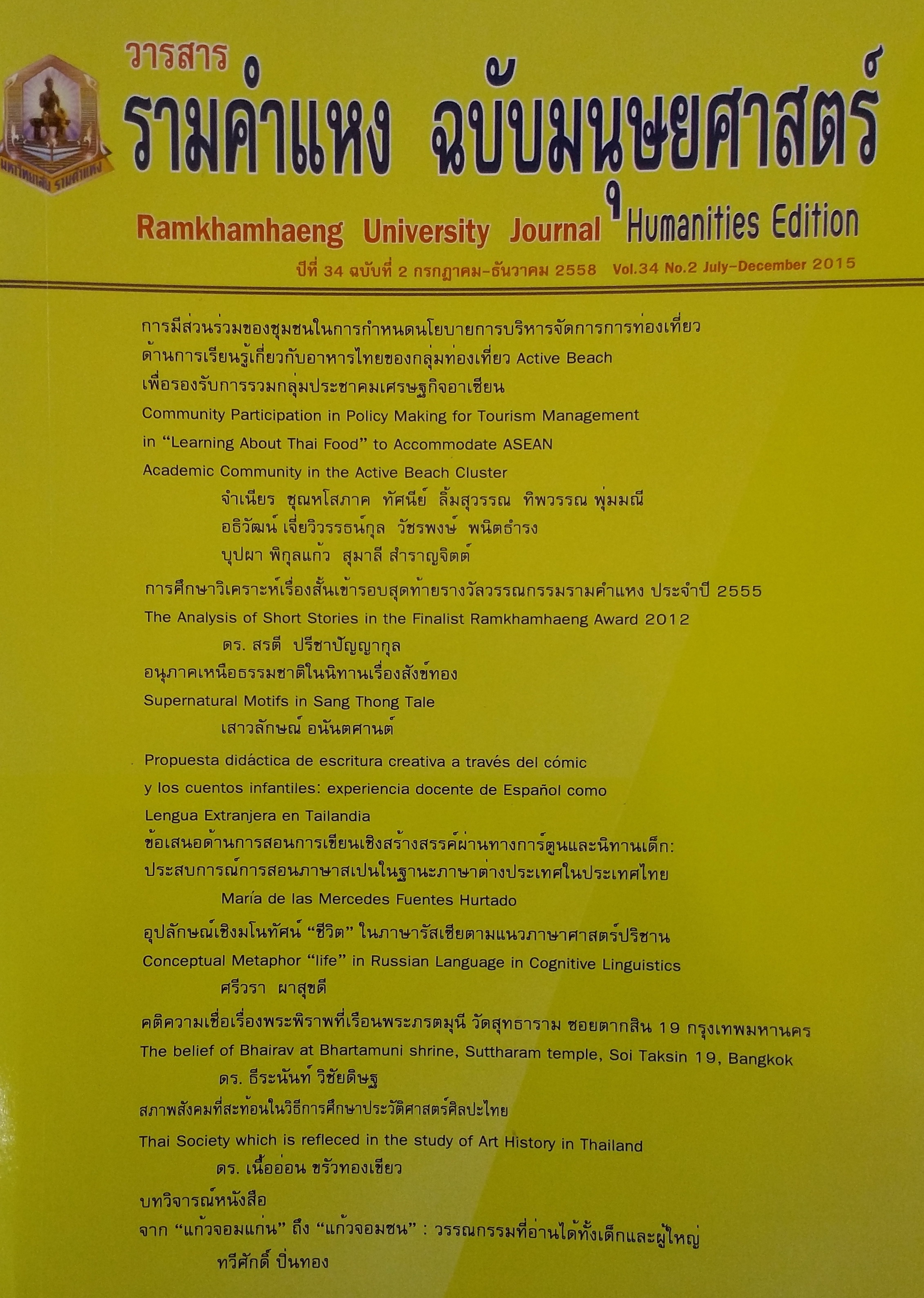อุปลักษณ์เชิงมโนทัศน์ “ชีวิต” ในภาษารัสเซียตามแนวภาษาศาสตร์ปริชาน Conceptual Metaphor “life” in Russian Language in Cognitive Linguistics
Main Article Content
บทคัดย่อ
บทคัดย่อ
บทความนี้ มุ่งเน้นศึกษามโนทัศน์ “ชีวิต” หรือ жизнь ในภาษารัสเซียตามแนวคิดทฤษฎีอุปลักษณ์ในมุมมองทางภาษาศาสตร์ปริชานของเลคอฟฟ์และจอห์นสัน (1980) พบความหมายอุปลักษณ์ต่าง ๆ ที่เกี่ยวข้องกับชีวิต เช่น การเดินทาง เป็นต้น ผลการศึกษาวิเคราะห์ พบว่า มีถ้อยคำอุปลักษณ์ชีวิตสะท้อนมโนทัศน์ต่อชีวิตในคลังข้อมูลภาษารัสเซียแห่งชาติ จำนวน 6 มโนทัศน์ด้วยกัน ได้แก่ (1) ชีวิต คือ บุคคลผู้แสดง (2) ชีวิต คือ ทรัพย์สิน (3) ชีวิต คือ การเดินทาง (4) ชีวิต คือ หนังสือ (5) ชีวิต คือ แม่น้ำ / ทะเลสาบ และ (6) ชีวิต คือ การต่อสู้ / สงคราม ผลการศึกษาแสดงให้เห็นถึงระบบมโนทัศน์ของชีวิตในถ้อยคำอุปลักษณ์ แสดงถึงลักษณะมุมมองความคิดและวัฒนธรรมที่ปรากฏในภาษารัสเซีย
Abstract
This paper is concerned with applying the cognitive linguistic view of metaphor theory as defined by Lakoff and Johnson (1980) to the concept of life жизнь in Russian Language. We can find some related metaphors, such as “the journey”. The findings reveal that there are 6 concepts of life reflected by the metaphorical expressions in Russian National Corpus, namely (1) life is a subject (2) life is a property (3) life is a journey (4) life is a book (5) life is a river / lake and (6) life is a struggle / war. The findings propose that our conceptual system of life is organized metaphorically, carrying within them cognitive characteristics and culture in Russia language. ","serif";mso-fareast-font-family:Calibri;mso-ansi-language:EN-US; mso-fareast-language:EN-US;mso-bidi-language:TH'> in Russian Language. We can find some related metaphors, such as “the journey”. The findings reveal that there are 6 concepts of life reflected by the metaphorical expressions in Russian National Corpus, namely
Article Details

อนุญาตภายใต้เงื่อนไข Creative Commons Attribution-NonCommercial-NoDerivatives 4.0 International License.
ประกาศลิขสิทธิ์จะปรากฏในเกี่ยวกับวารสาร ควรอธิบายสำหรับผู้อ่านและผู้เขียนว่าเจ้าของลิขสิทธิ์เป็นผู้เขียนวารสารหรือบุคคลที่สาม ควรรวมถึงข้อตกลงการอนุญาตเพิ่มเติม (เช่นใบอนุญาตครีเอทีฟคอมมอนส์) ที่ให้สิทธิ์แก่ผู้อ่าน (ดูตัวอย่าง) และควรให้วิธีการรักษาความปลอดภัยหากจำเป็นสำหรับการใช้เนื้อหาของวารสาร


